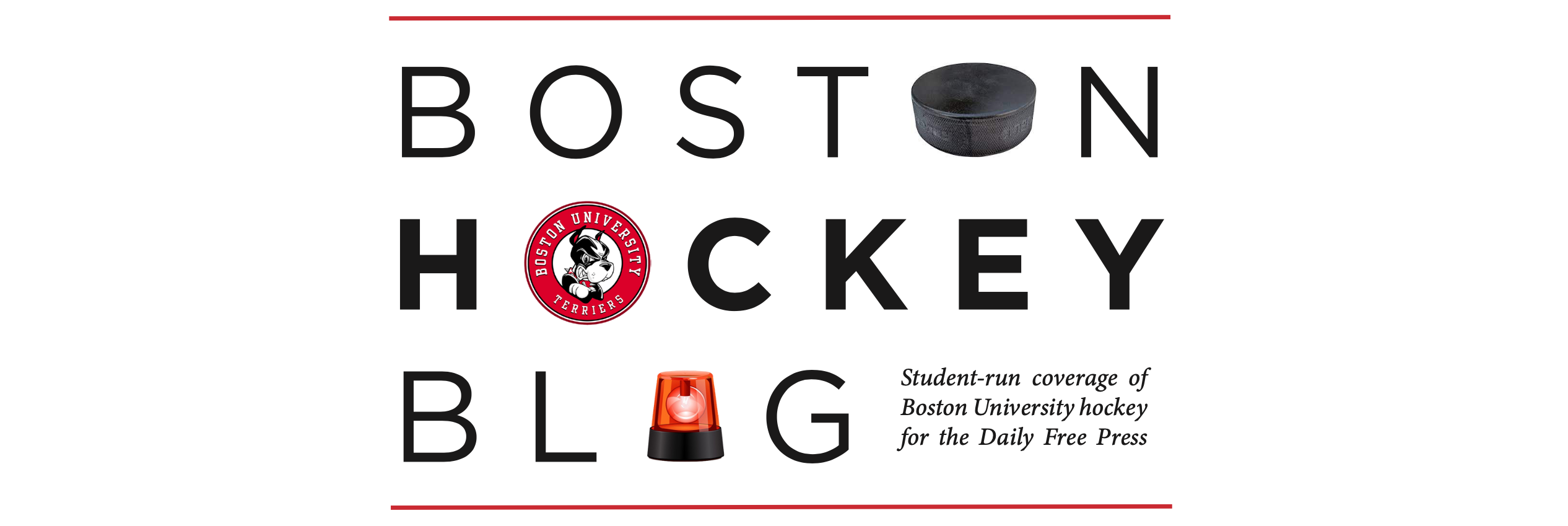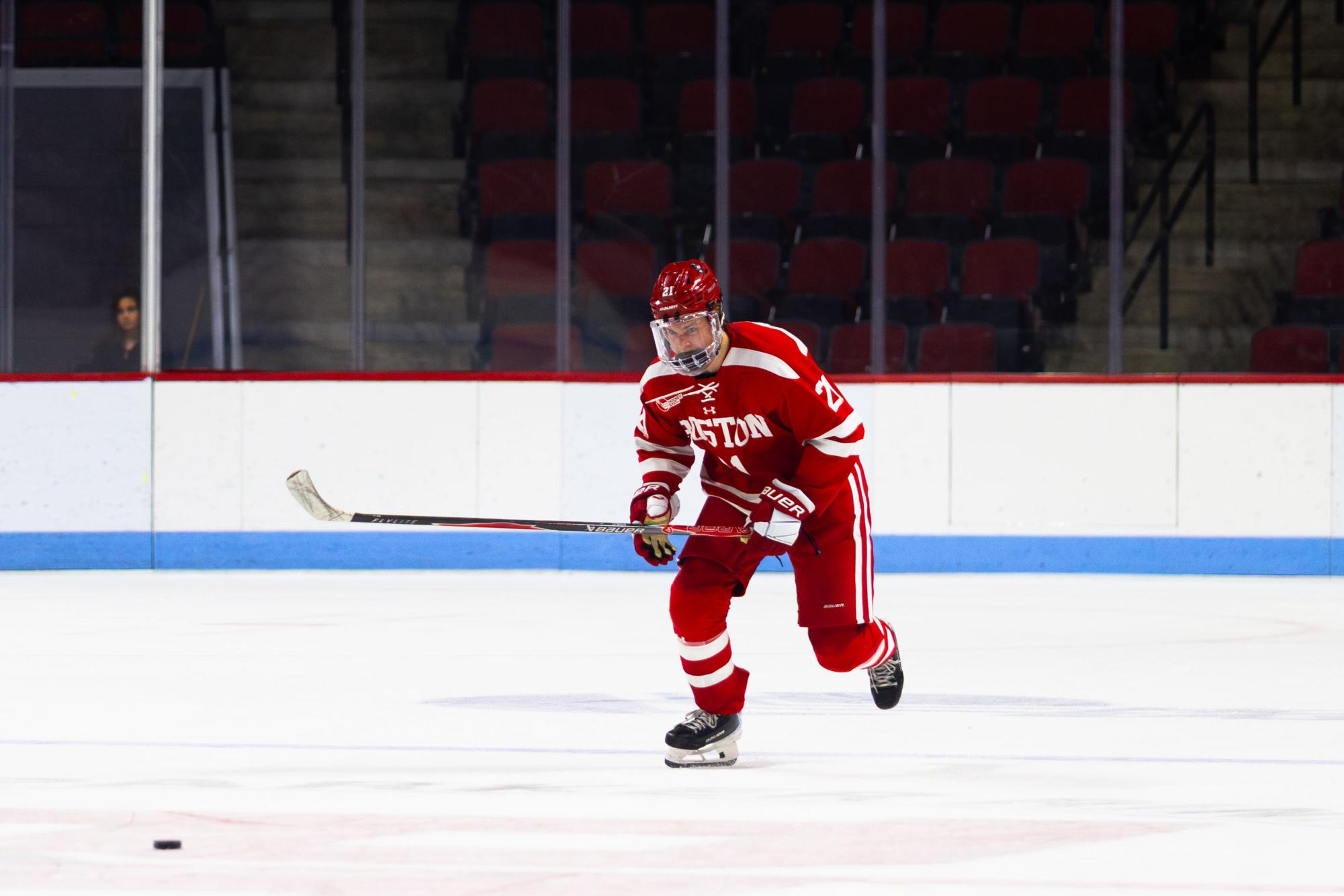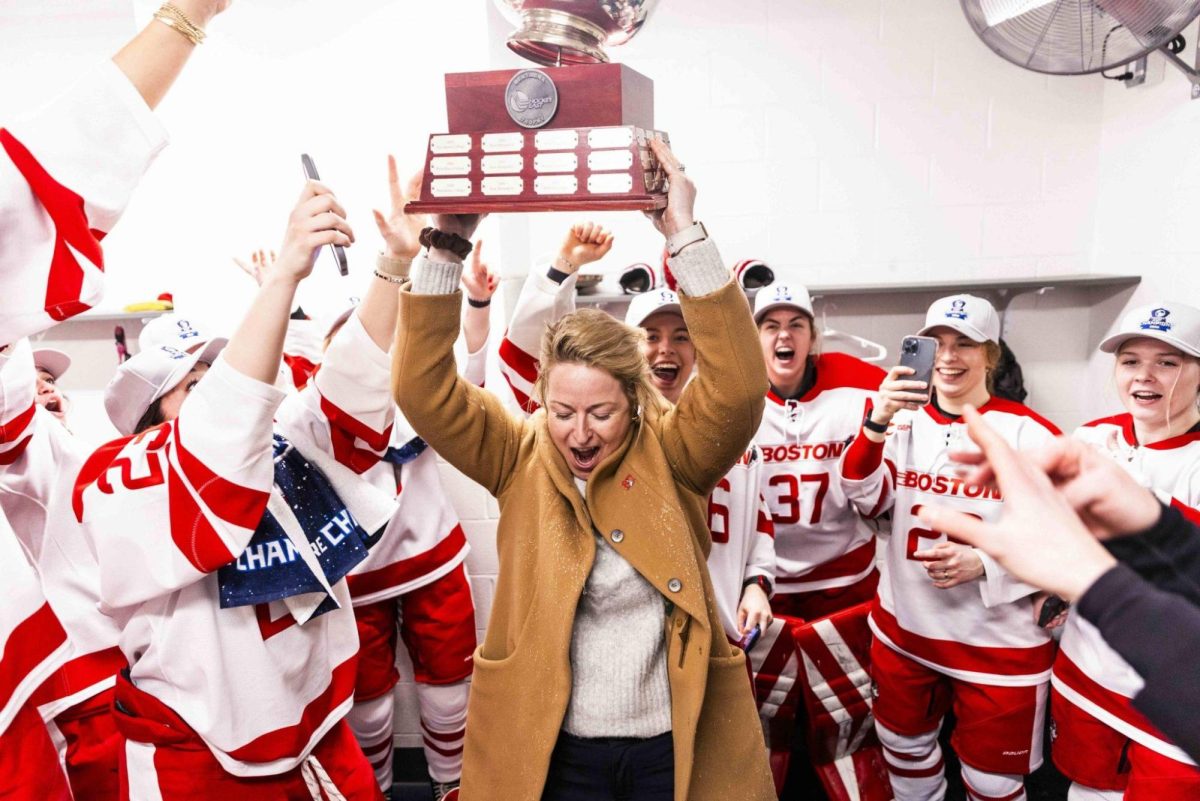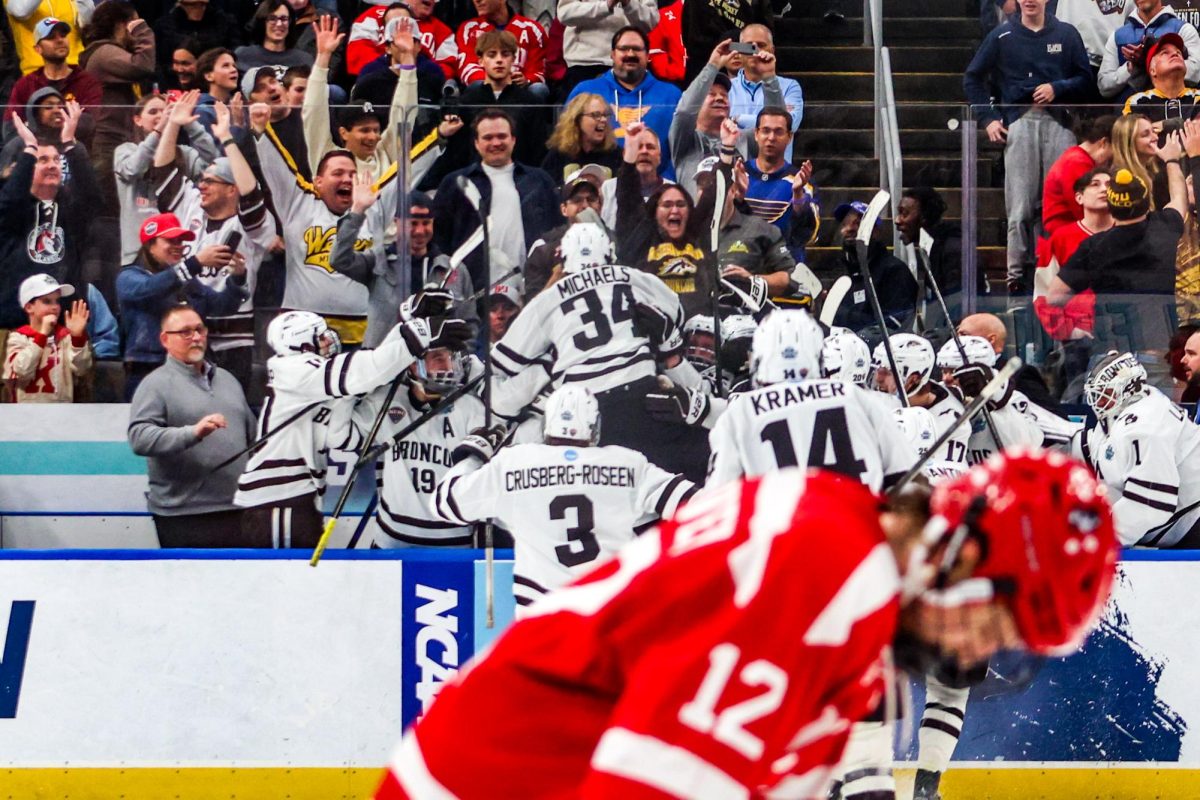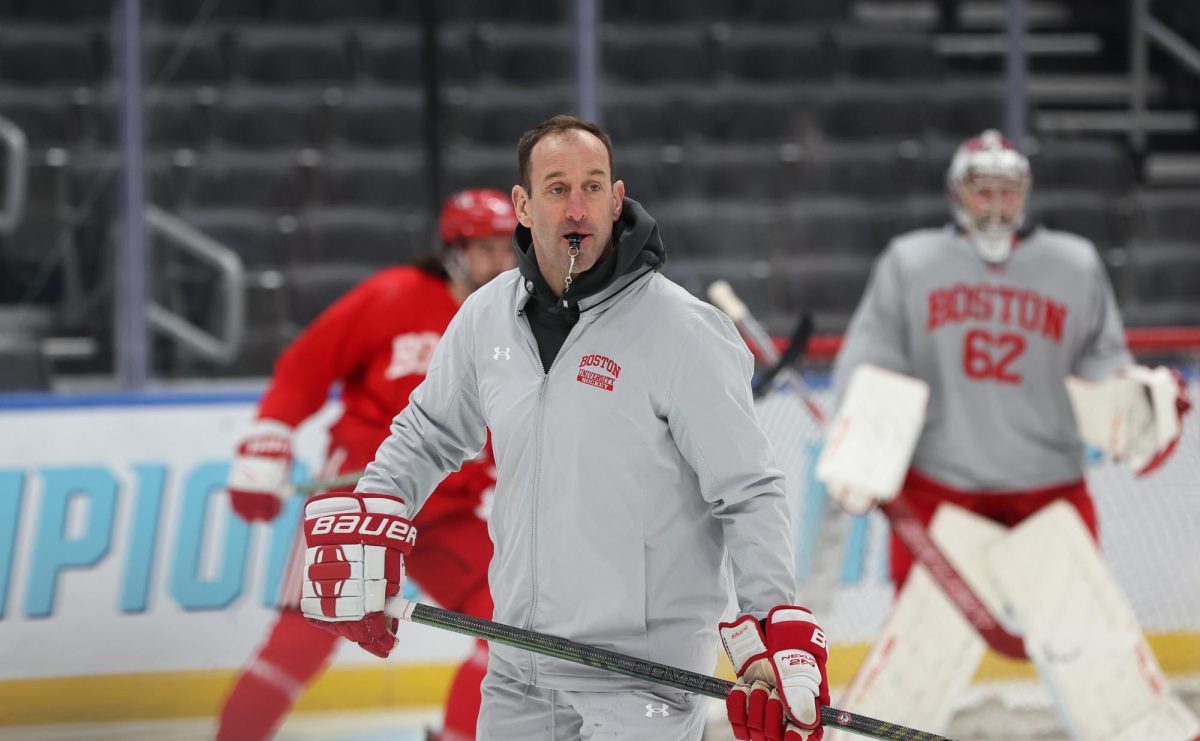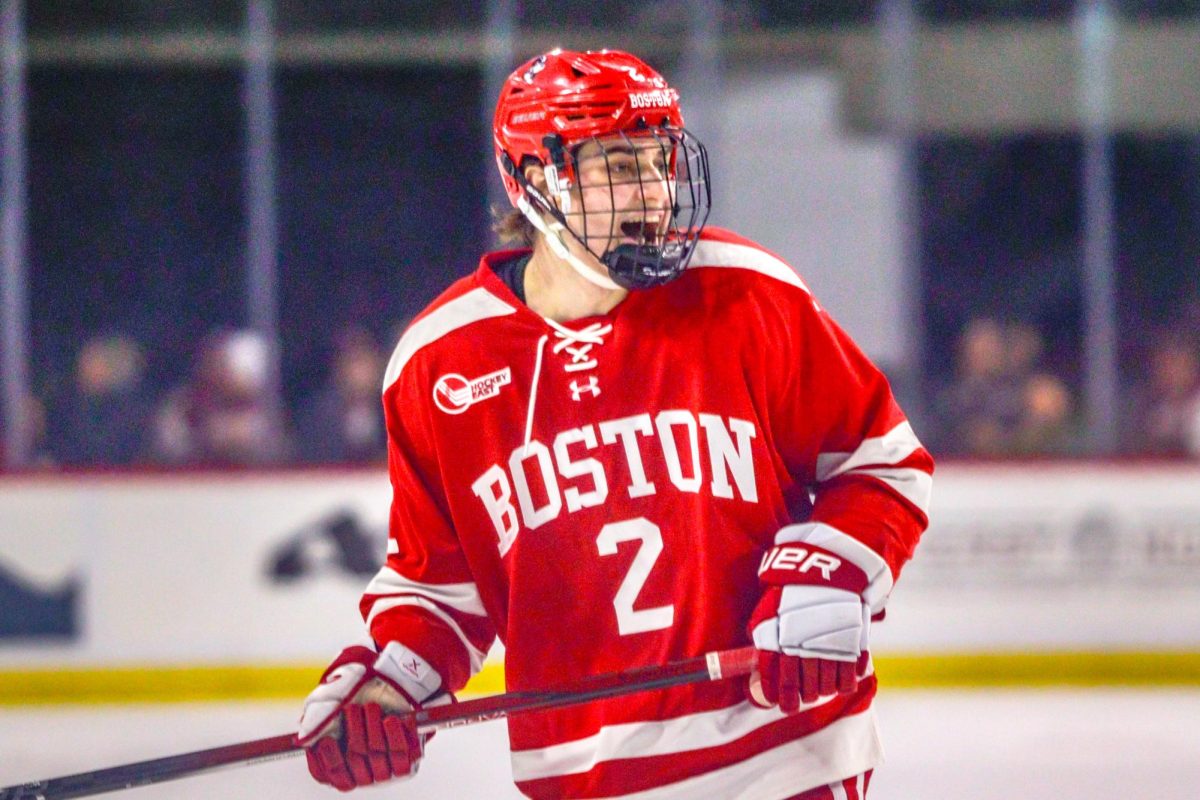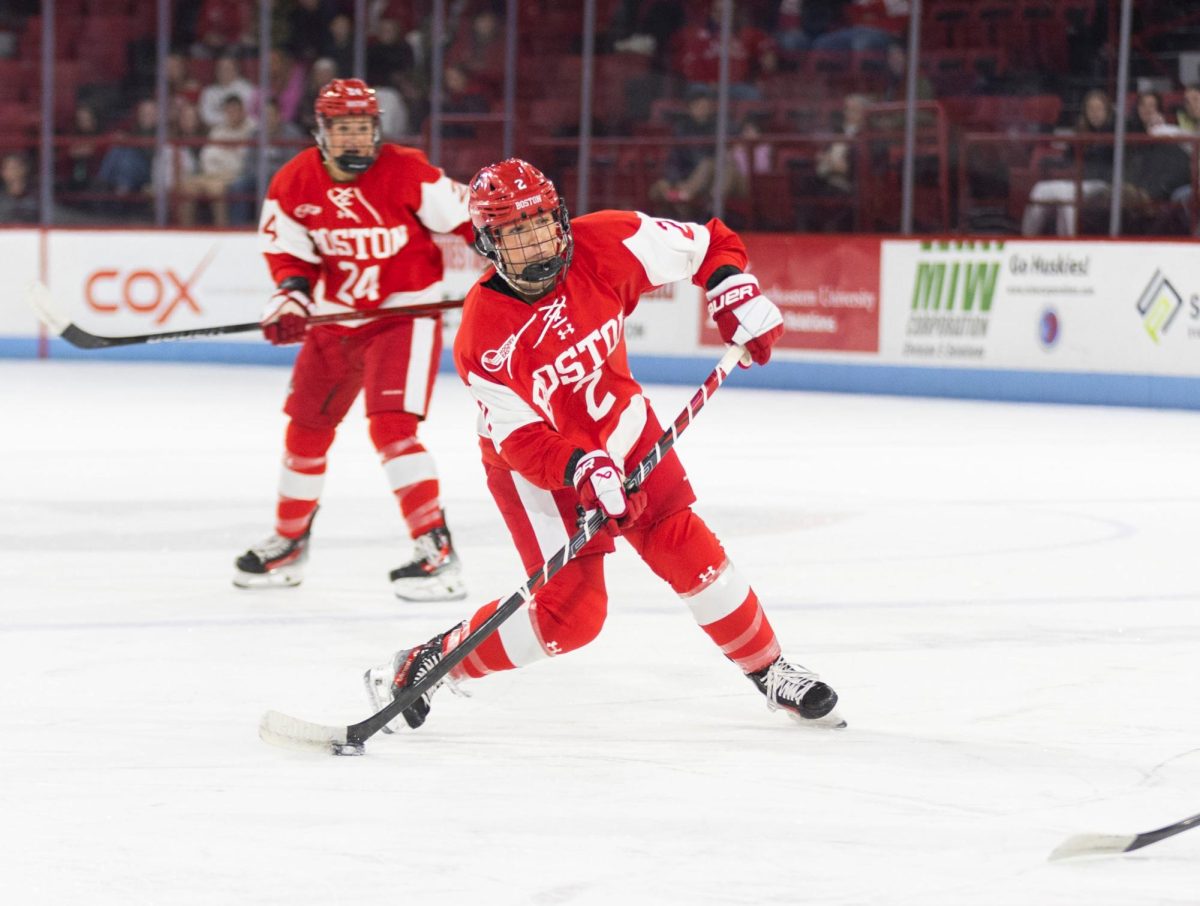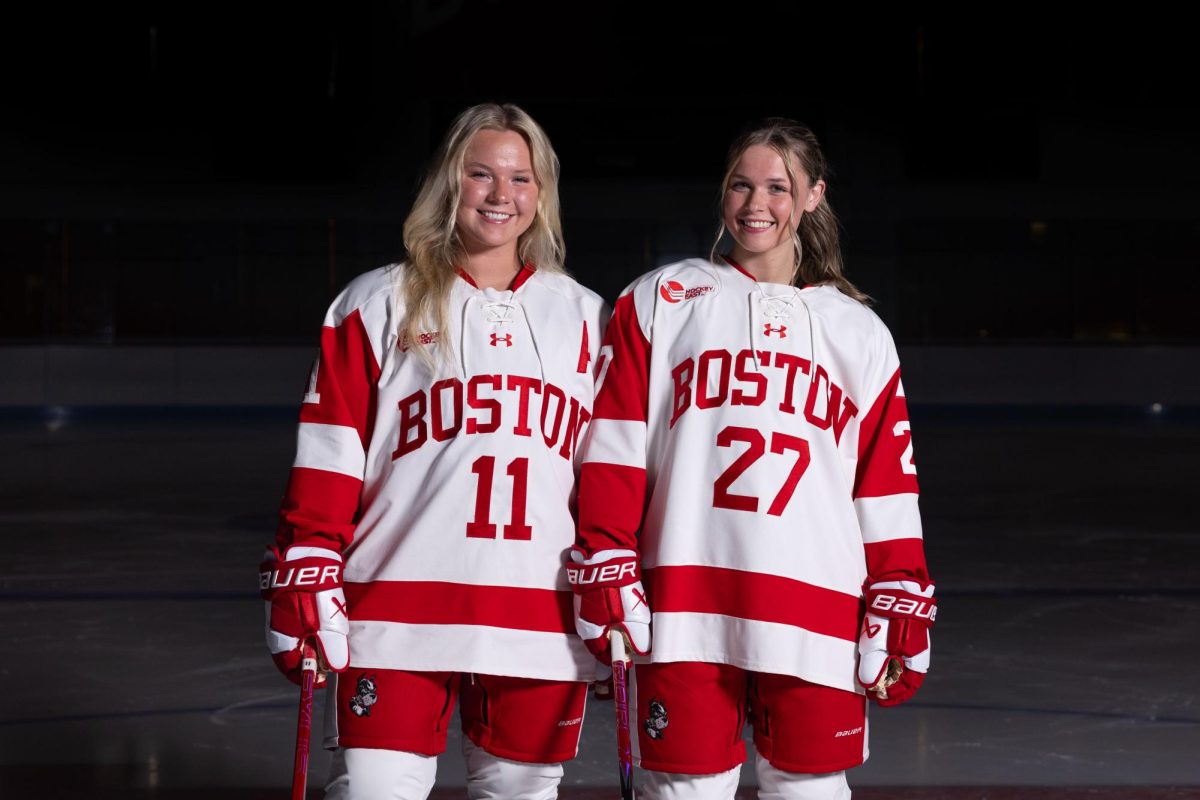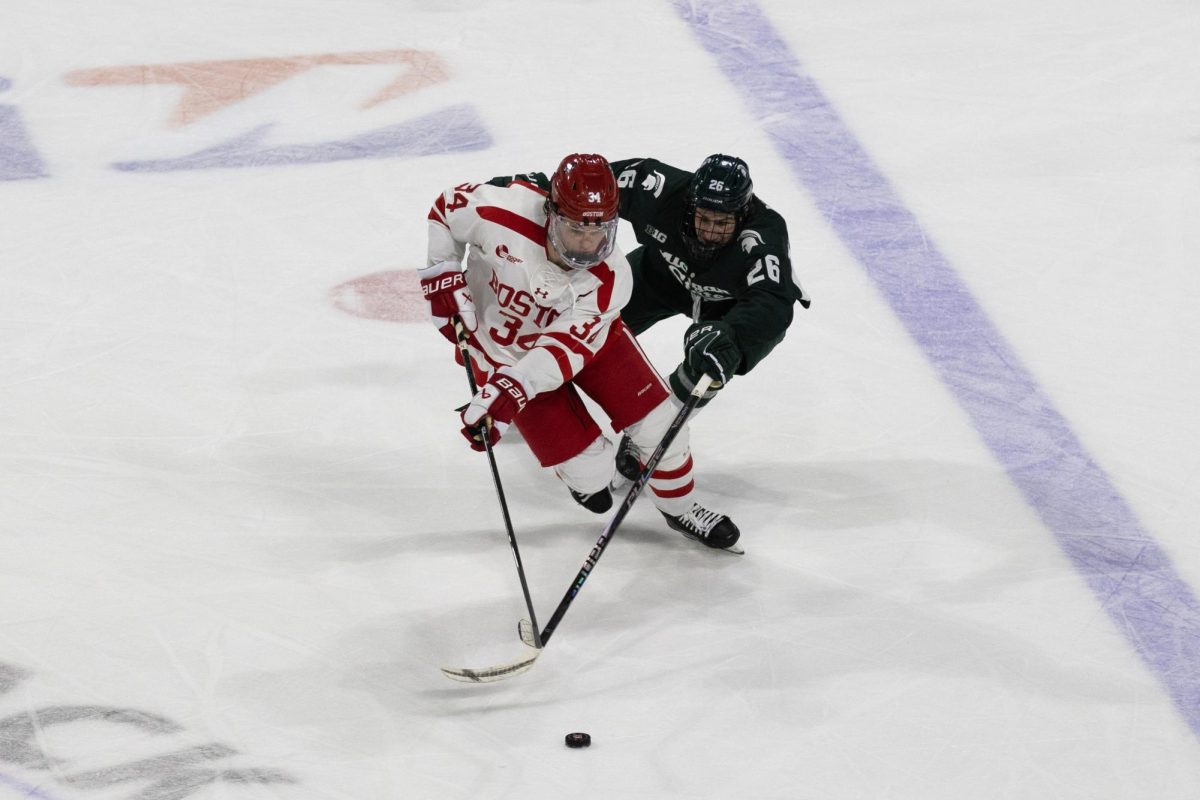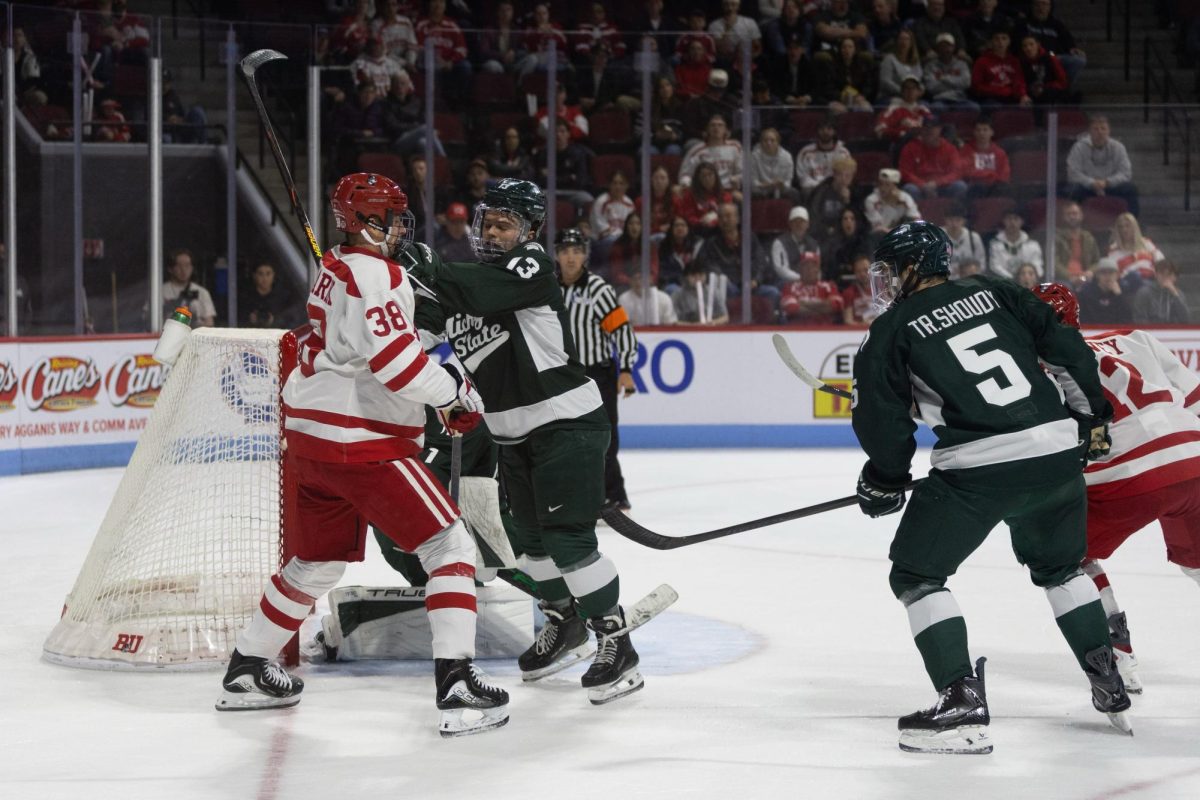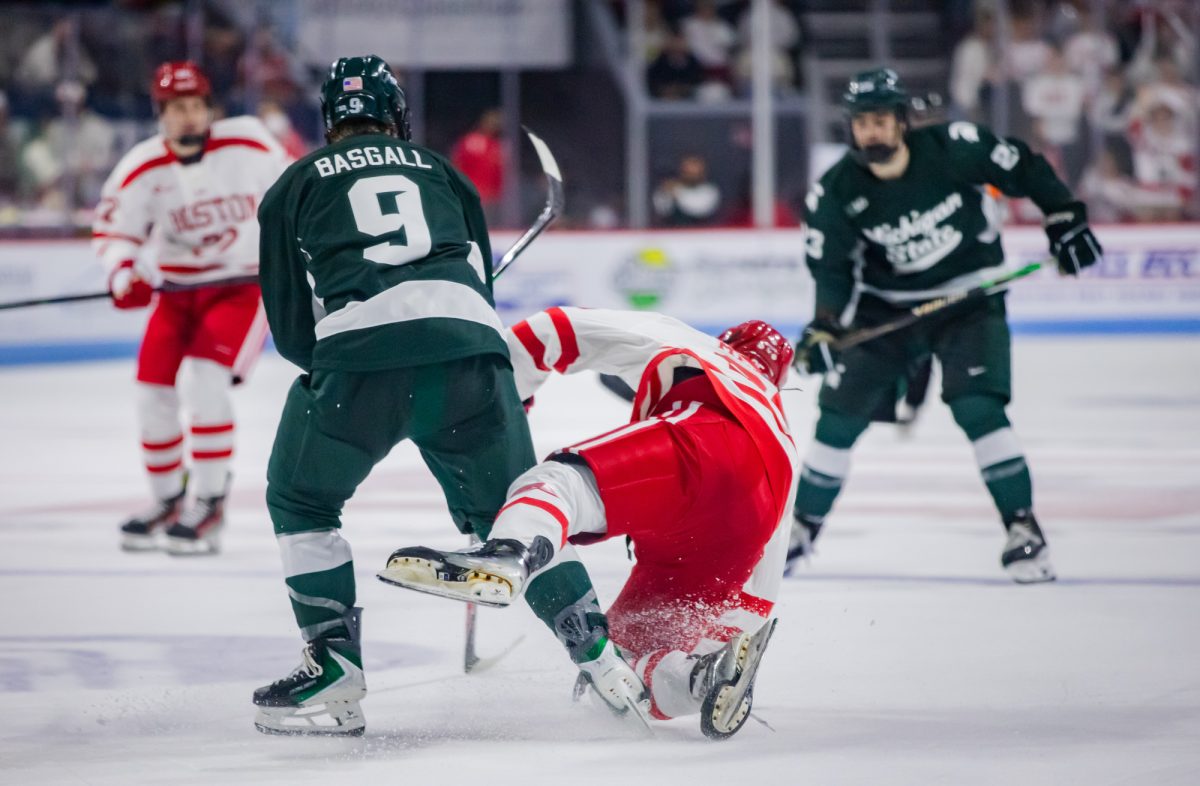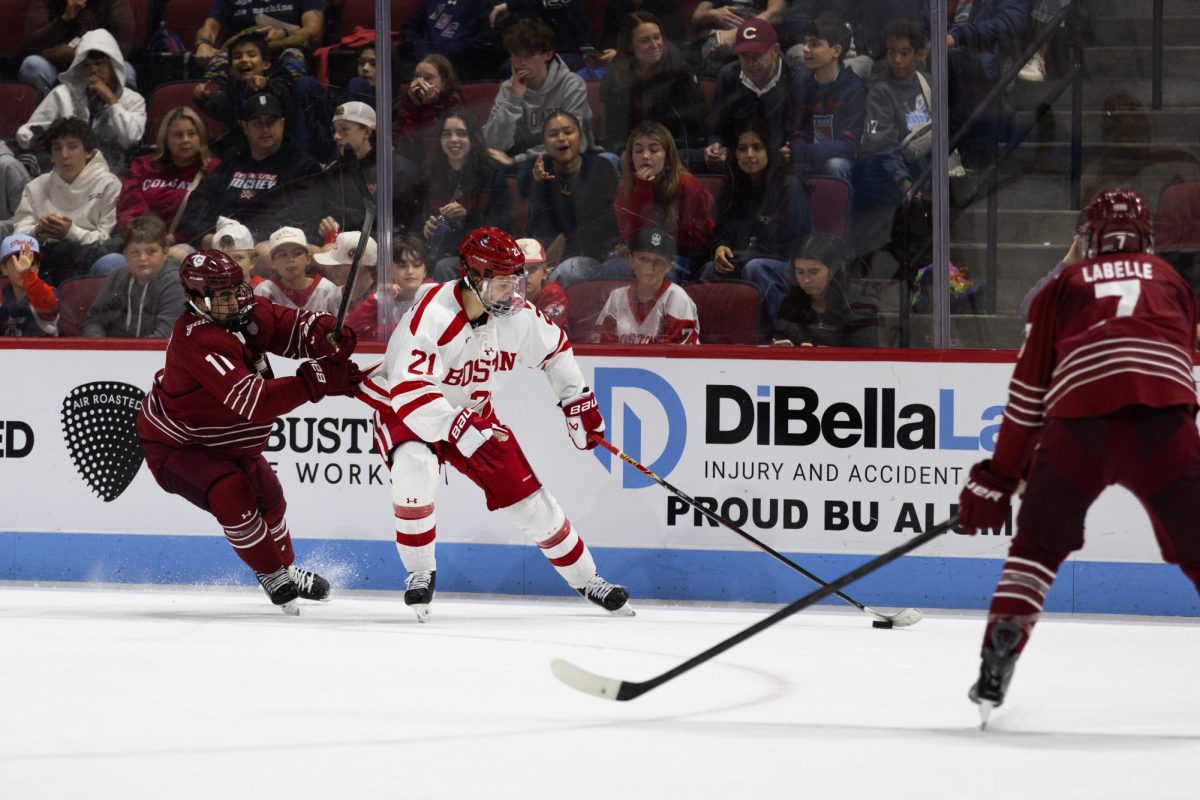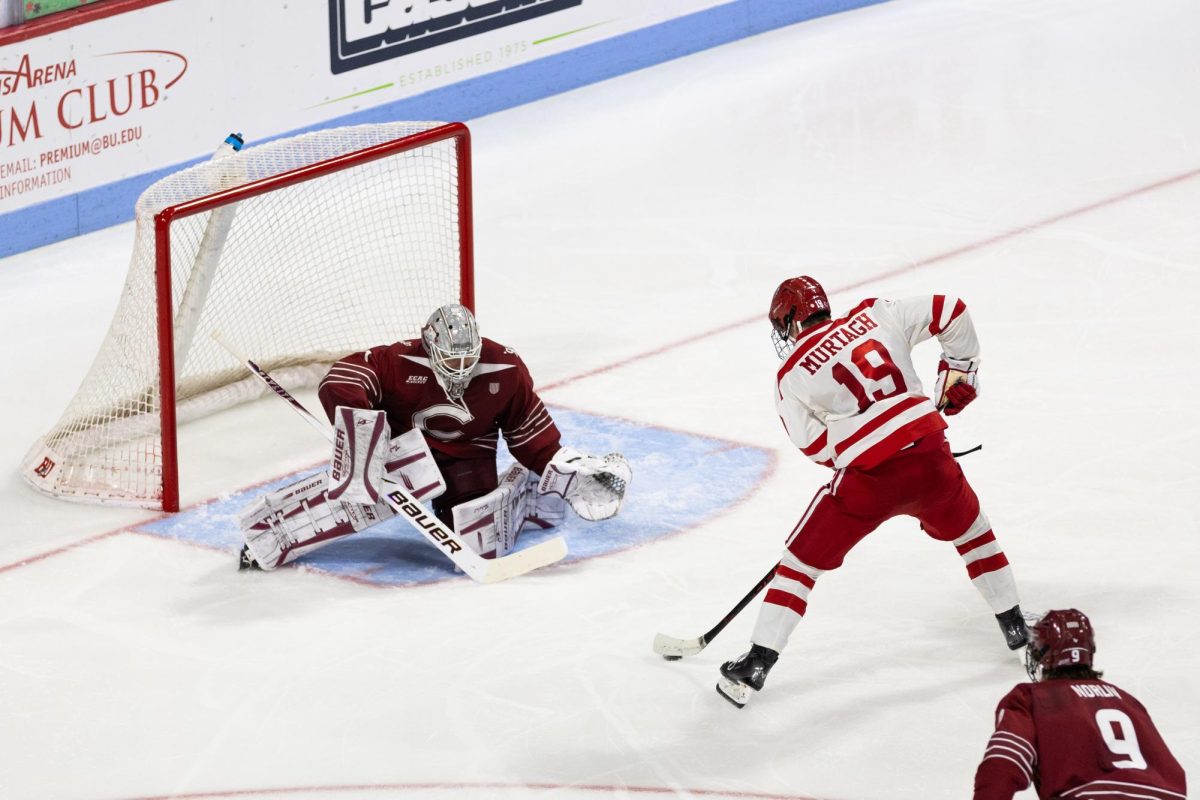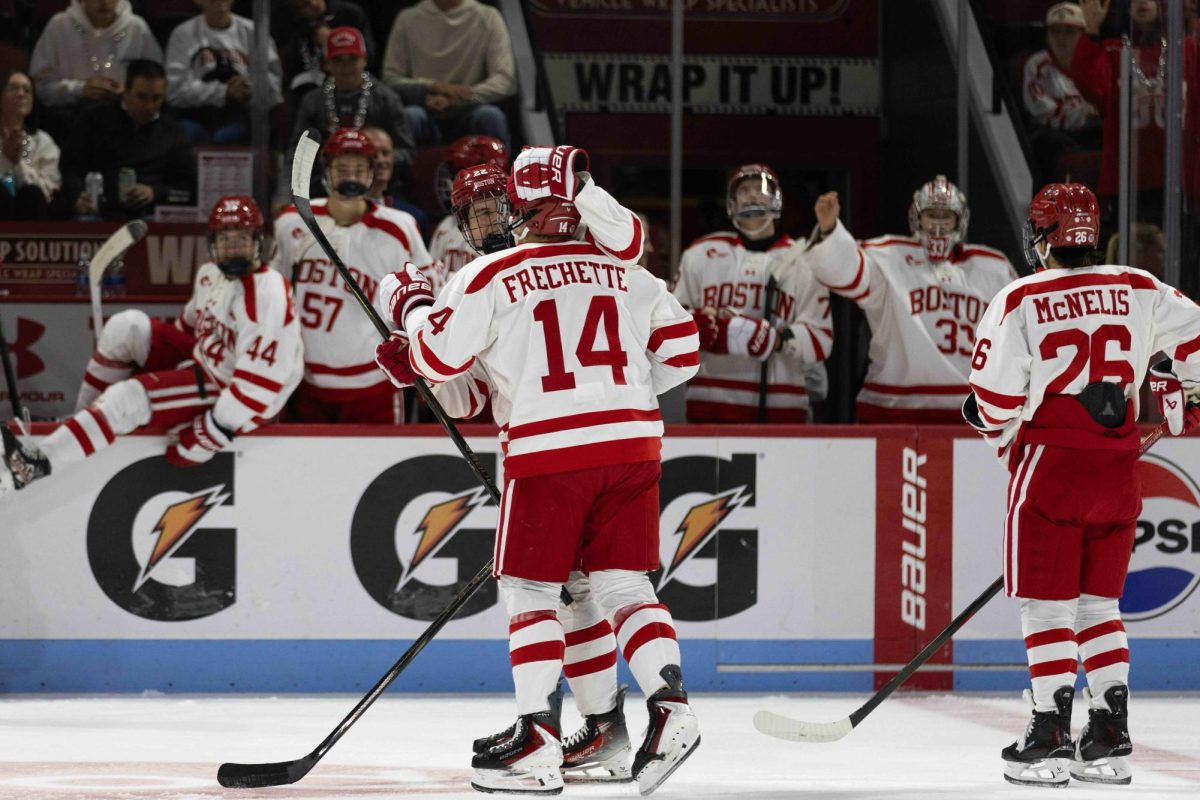RYDER RITCHIE DIDN’T KNOW if he’d ever get to play at Boston University.
At the time the Minnesota Wild called his name at 45th overall in the 2024 NHL Draft, Ritchie was a member of the Prince Albert Raiders of the WHL. Due to the NCAA’s amateurism rules, Canadian major junior players were ineligible to play collegiate hockey. Participation in those leagues labeled players as professionals, and some had already signed their NHL entry-level contracts.
“We’re kind of blind to college hockey, everybody goes to the Western league or the OHL or the Q[MJHL],” said Ritchie on the norm in his native Canada. “When I was 15, I was kind of thinking of going to college, and I got to visit a few schools.”
The idea of playing in college lingered for Ritchie. Even though the Terriers reached out within an hour of his eligibility opening, he wasn’t able to visit. Boston is a long way from his native home of Kelowna, British Columbia. He eventually signed into the WHL at age 16, shutting the door on the route to college hockey.
That all changed for Ritchie on Nov. 7, 2024, when the NCAA voted in favor of opening the gates for Canadian major junior players to commit to college programs.
A few months later, Ritchie made his commitment to BU official on his Instagram. It wasn’t a no-brainer right away, but he had help from a fellow countryman who’d been up and down Comm. Ave before.

FORTY-FOUR PICKS before Ritchie, his close friend, Macklin Celebrini, was taken first overall by the San Jose Sharks.
Leading up to the 2024 draft, Celebrini dominated with the Terriers. He scored 64 points in 38 games on his way to winning the Hobey Baker Award at age 17.
At the time, the only way he could get himself into college hockey was through the usual American route to Division I eligibility: play high school prep and then perform well in the USHL.
After finishing his rookie NHL season as a Calder Trophy finalist, Celebrini was visiting the Ritchie household for a week over this past summer.
At the time, Ritchie was in the midst of a big decision on where to continue his hockey career. The choice could’ve been an easy one; the Big Ten and NCHC have top-tier programs and are close to his home in Western Canada.
However, BU remained in the cards all the way through the process. Many factors contributed to the Terriers staying alive in the race for Ritchie: coaching, history, and environment — but a family friend’s blessing put a ring on the paw.
“I asked Mack straight up: ‘If you had to make the decision again, would you go to BU, or would you change?’” said Ryder’s father, Byron. “And he said there’s no other place he’d go than BU.”
Ryder didn’t have much to go on at that point. A few YouTube videos of the Beanpot and the program helped give him an idea of what was to come in his experience in Boston. But a perspective on everything BU had to offer from his “best buddy” made the decision a thousand times easier.
“He obviously loved it — said it’s unbelievable,” said Ritchie. “Getting to kind of talk to him about it, and his experience here, how much he loved it. I mean, it was just all like a green flag for me.”

THROUGHOUT THE 2024-25 SEASON, Ritchie wasn’t able to solely focus on the opportunity that opened in front of him. He was deep in a competitive year with the WHL’s Medicine Hat Tigers, but that doesn’t mean his amateur and professional future was far from his mind. He has his father to thank for that.
“I was born while he’d played for the Calgary Flames,” said Ritchie, “So ever since a young age, I got to experience what it’s like to be around the game of hockey and be around pro players. I just got born into it.”
Byron is full of professional hockey perspective. He brings 20-plus years of experience from playing all around the world. From his NHL days to multiple stops in Europe, he has loads of hockey knowledge.
But he knows nothing more than the league his son was in. Byron started his pro hockey career with the Lethbridge Hurricanes in the WHL. He understands the routine of the league himself. So when the opportunity to play college opened, so did the conversations about what was best.
The WHL schedule is a busy one; travel is by bus, the rides are long, and the pizza is plentiful. But for an NHL second-round pick, there’s more out there to help grow your game. At 19 years of age, Ritchie would’ve been playing more frequently and against younger competition if he stayed in the WHL.
“It toughens you up. It hardens you. It exhausts you. You have to learn how to play tired,” said Byron. “There’s no off nights. But on the other hand, is that best for your development long-term? I’m not sure.”
The Terriers called the Ritchie household again after his eligibility opened. This time around, nothing prevented Ritchie from shipping up to Boston. When BU learned of his desire to potentially opt for the NCAA, associate coach Joe Pereira began to recruit him. The more the Ritchies learned of what the Terriers had to offer, the stars began to align.
At BU, he’s a year older than a true freshman. There needs to be a fine-tuning to his game, and the NCAA environment grants Ritchie such an opportunity. No one explained that better than Byron, and his perspective is a growing consensus within the hockey world.
“He’s still more skilled than a lot of the college players and smarter, but they’re heavy and fast and they play hard,” he said. “So now his compete level away from the puck, his puck battles, his details defensively, things like that — he’s going to improve there.”
A focus that many pundits will have for Ritchie and the influx of Canadians into college hockey is how they’ll adapt to the NCAA style. There’s one thing certain: all parties have an idea of what Ritchie can do on the ice. Ritchie also knows that what separates him from his friends heading south of the border is the program he’s joined.
“There’s a lot of things,” said Ritchie on what made BU stand out. “Unbelievable coaching staff, sick rink and you’re going to a good team that wants to win — that’s the best part of hockey. So I want to win a national championship and I thought this would be a great spot to do it.”
It’s a symbiotic relationship for Ritchie and the coaching staff. They believe in him, and likewise, he trusts their judgment to put him in a spot where he can thrive. Considering his right-handedness along with the undeniable offensive skillset, his new coaches are unified on his ability to play all sides of the puck right away.
“He can help us in all areas, I think he’s going to be a tremendous asset for us from day one,” said Pereira. “We don’t have too many right-shot wingers this year, so we’re going to need him to play well for us.”
Head coach Jay Pandolfo said he thinks Ritchie will “get a lot better over the course of the season.”
“It was great that he chose to come here. Really good hockey sense, really good skill set, some of the things we look for,” said Pandolfo on Ritchie. “But his hockey sense is really high, and we value that a lot here to go along with his competitiveness.
“He can play with anyone. He can make plays.”
He has done just that in his previous stints. As a WHL Rookie of the Year, a 2x junior gold medalist (Hlinka-Gretzky, U18s) and a WHL champion in Medicine Hat, he’s won. He’s also lost, too, and Ritchie knows both sides have contributed to his biggest lessons.
“How much better winning feels than losing; I think that’s the biggest thing, getting that feeling. You want to feel that every year and with every game,” said Ritchie. “You learn a lot from winning, and you learn a lot from losing as well.”
Boston University was in Ritchie’s mind before wearing the Scarlet and White was ever a likelihood. One rule change made it possible, and it will benefit his hockey career in many ways. He has the chance to add more to his already stocked trophy case — a sixth national championship for the Terriers.
“That’s the goal,” he said. “I got to win a WHL championship last year, and that was the most fun I’ve ever had in my life. So I want to win another one.”
Editor’s note: This story is part of the Daily Free Press’ annual Hockey Issue. Physical copies are available around campus starting Friday, October 3rd and will be handed out at both the men’s and women’s home openers.
